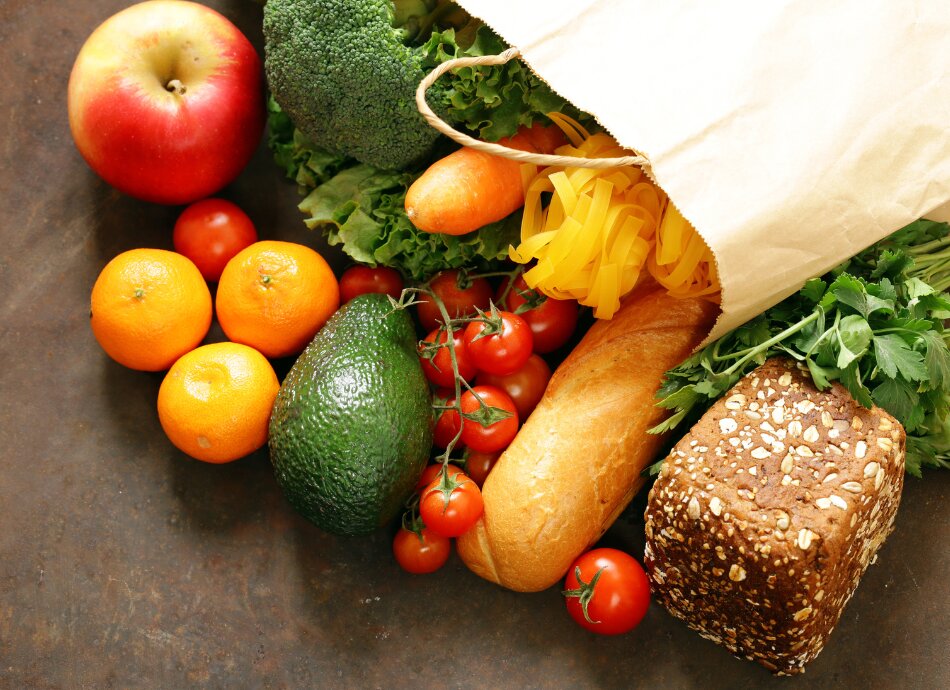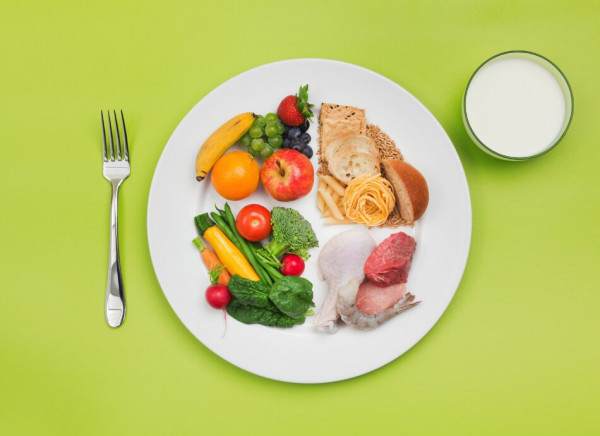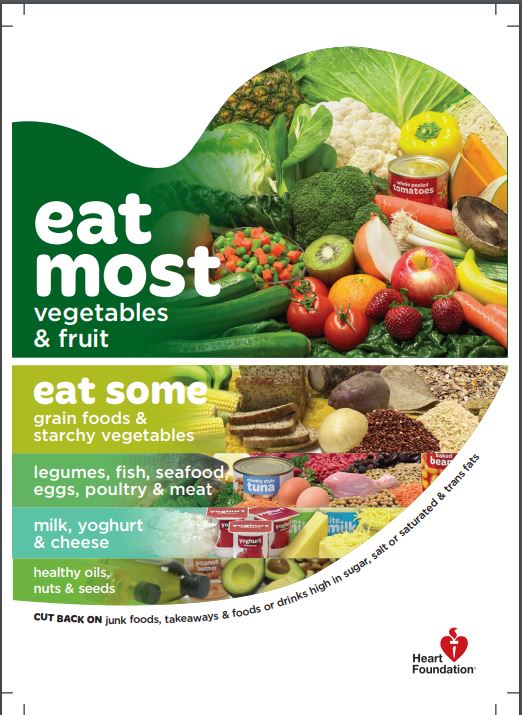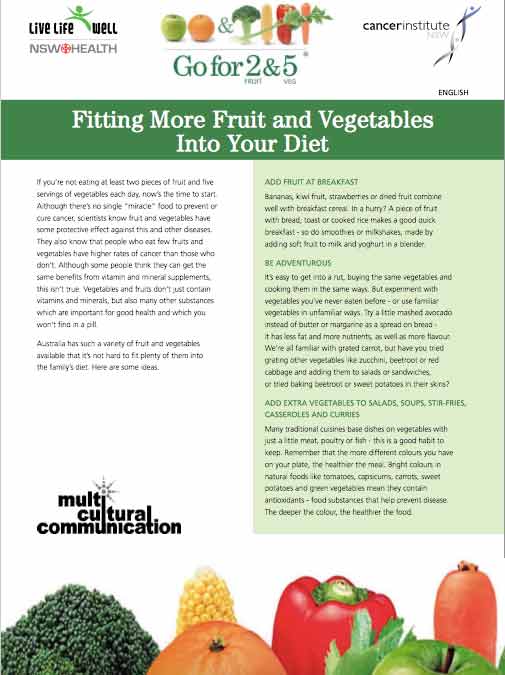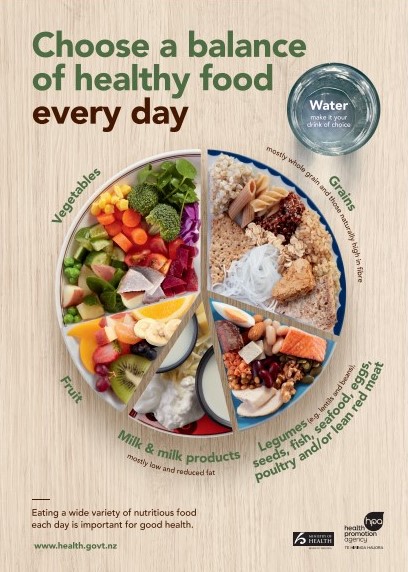We need energy for everything we do, including digesting our food, keeping our body tissues working so we can do things like use our muscles, control our temperature, grow and make new tissues. Energy is released into your body from macronutrients (carbohydrates, proteins, fats) and to a lesser extent alcohol, by a process called oxidation.
The unit of energy is the kilojoule (kJ):
- fats yield 37.7 kJ/g (or 9 calories per gram)
- proteins 16.7 kJ/g (or 4 calories per gram)
- carbohydrates 16.7 kJ/g (or 4 calories per gram)
- alcohol yields 29.3 kJ/g. (or 7 calories per gram).
Our personal energy requirements vary with age, gender, body size and activity – so there are different recommendations of how much energy is needed every day for each age and gender group:
| Men |
Inactive kJ |
Moderate activity kJ |
| 19–30 years |
10,800 |
13,800 |
| 31–50 years |
11,000 |
16,100 |
| 51–70 years |
9,500 |
12,100 |
| >70 years |
7,400 |
13,600 |
| Women |
Inactive kJ |
Moderate activity kJ |
| 19–30 years |
8,100 |
10,500 |
| 31–50 years |
7,900 |
10,100 |
| 51–70 years |
7,600 |
9,600 |
| >70 years |
7,100 |
9,100 |
(Source: NRV NZ and Australia, 2006, updated 2017(external link))


